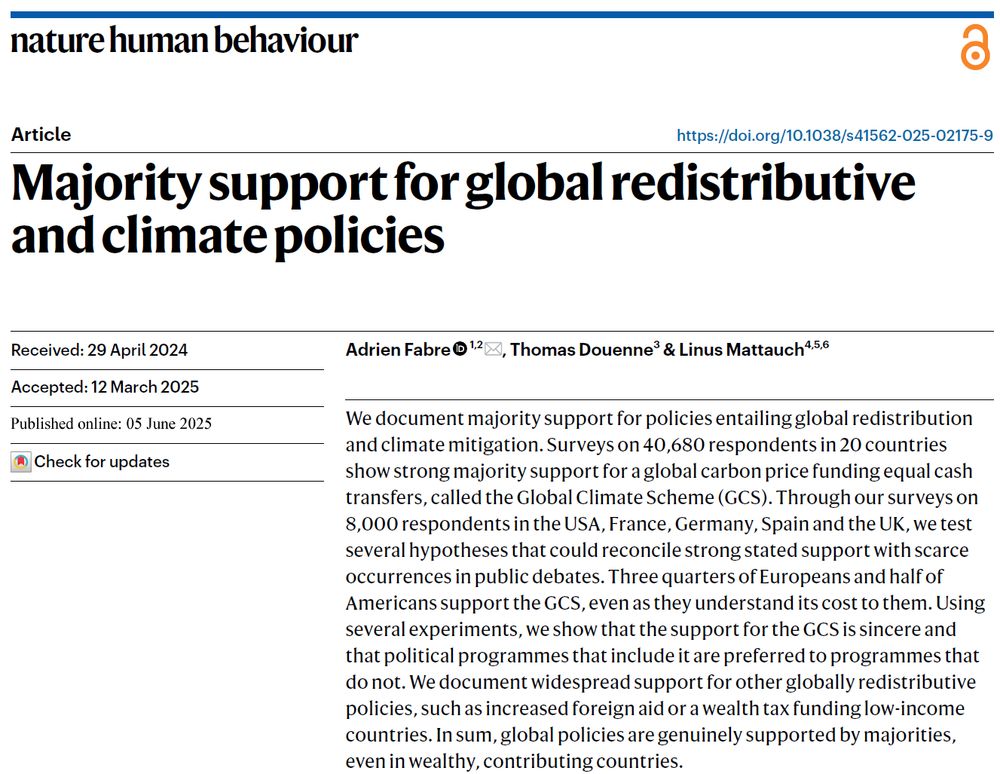Adrien Fabre
@adrien-fabre.bsky.social
2K followers
2K following
320 posts
CNRS researcher at CIRED.
Founder of Global Redistribution Advocates.
Youtuber: http://bit.ly/chaine_humaine
Ex ENS Ulm, PSE, ETHZ.
Economics, sustainability, politics.
Posts
Media
Videos
Starter Packs
Pinned


